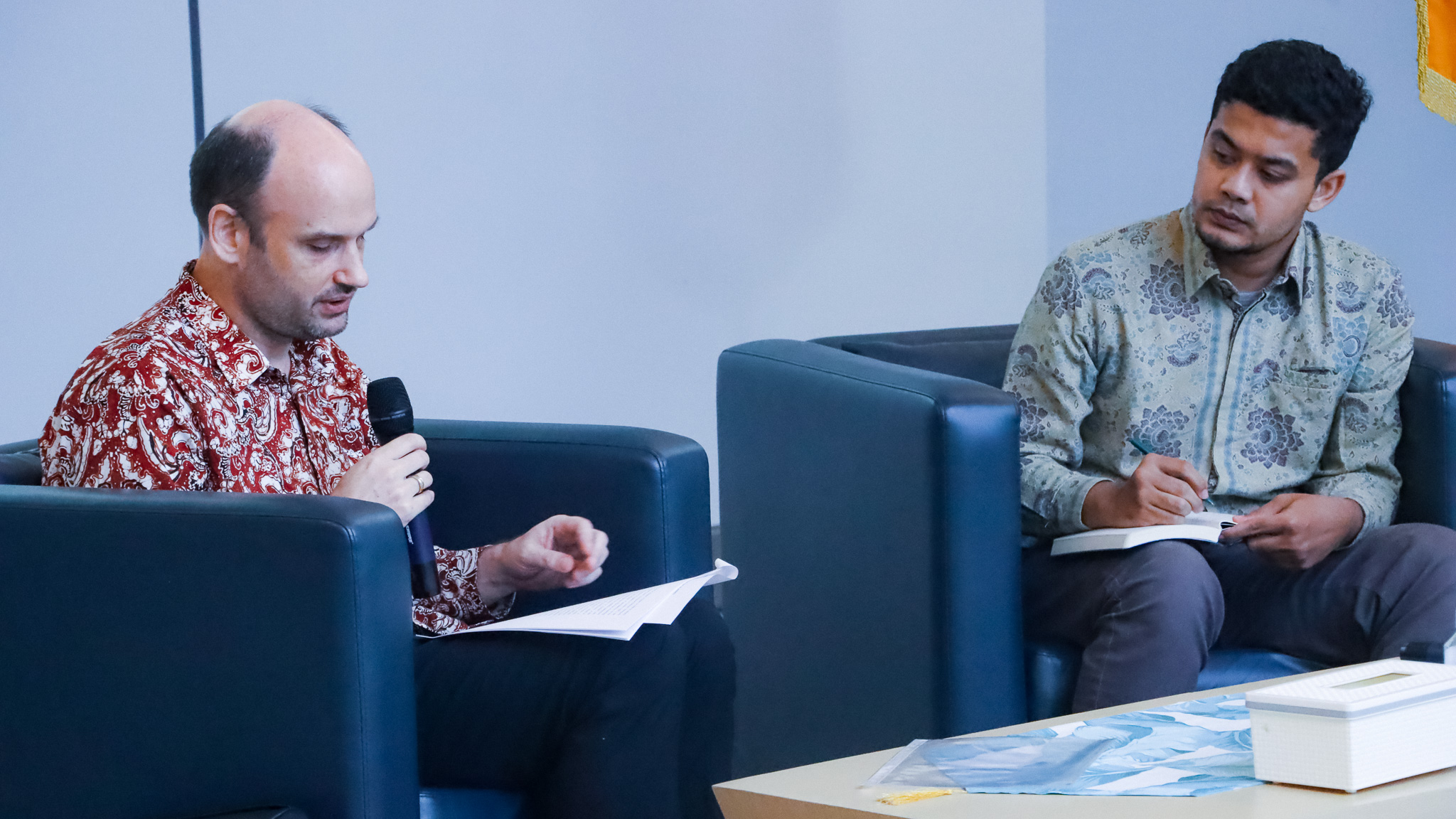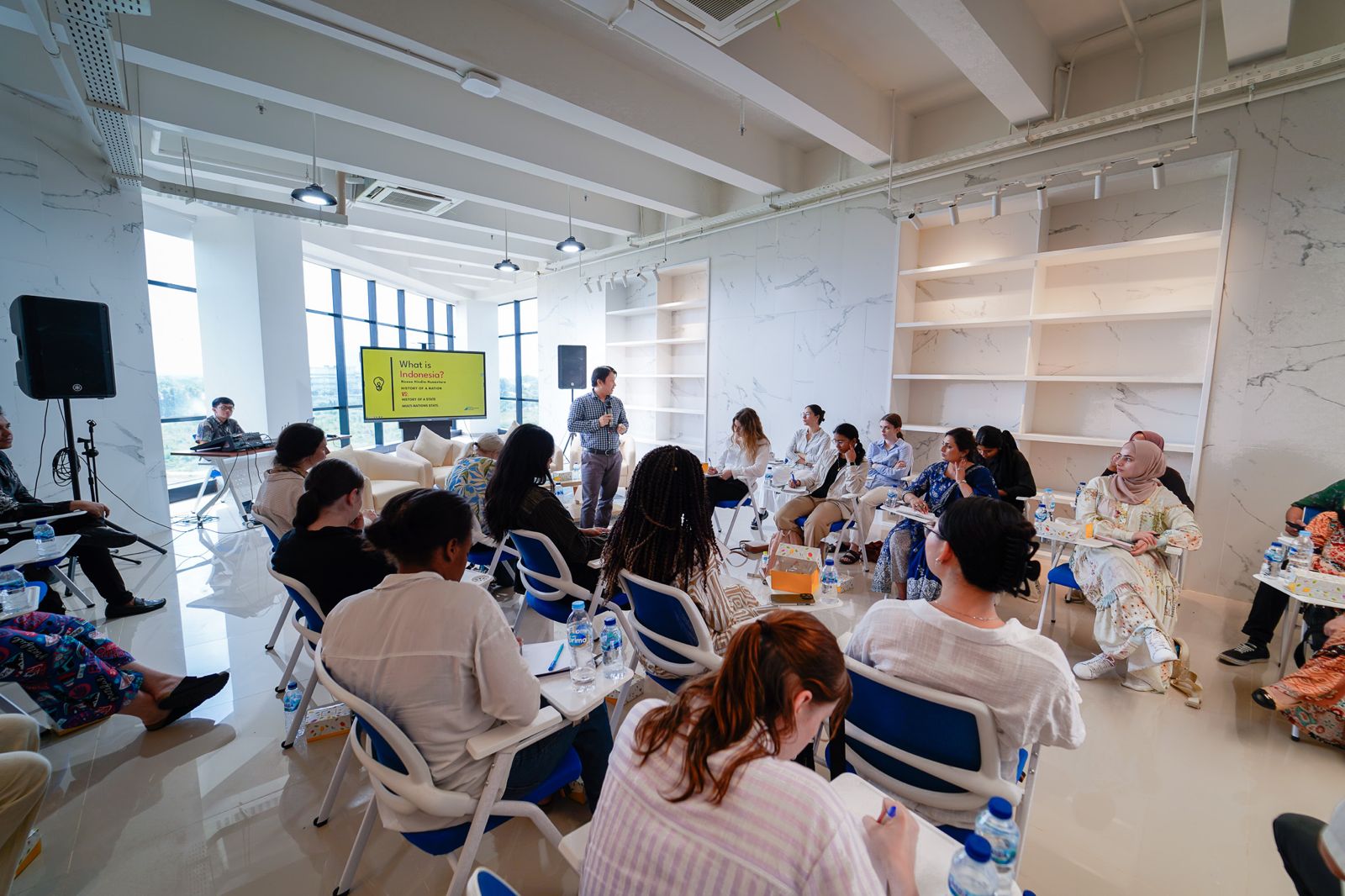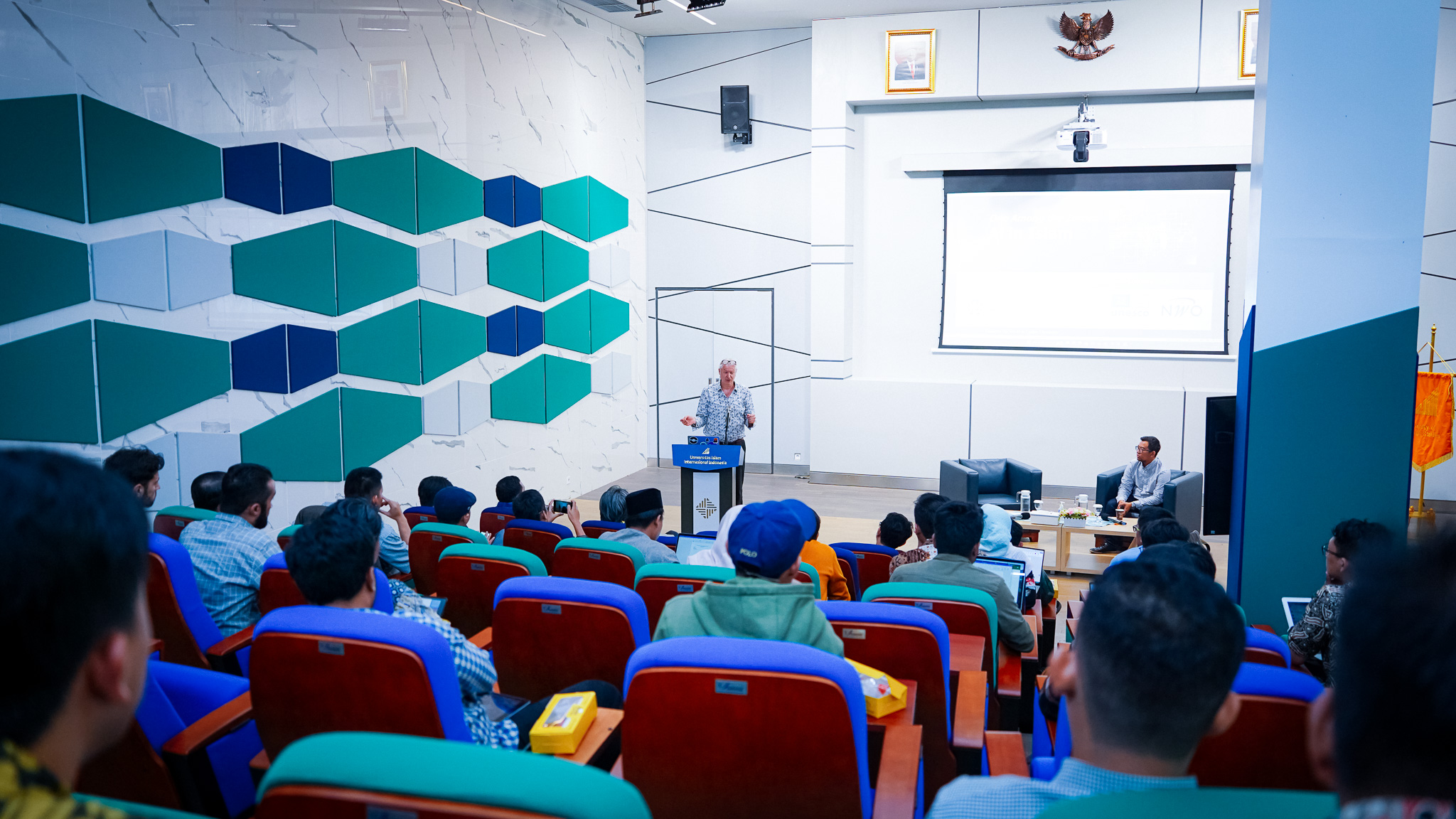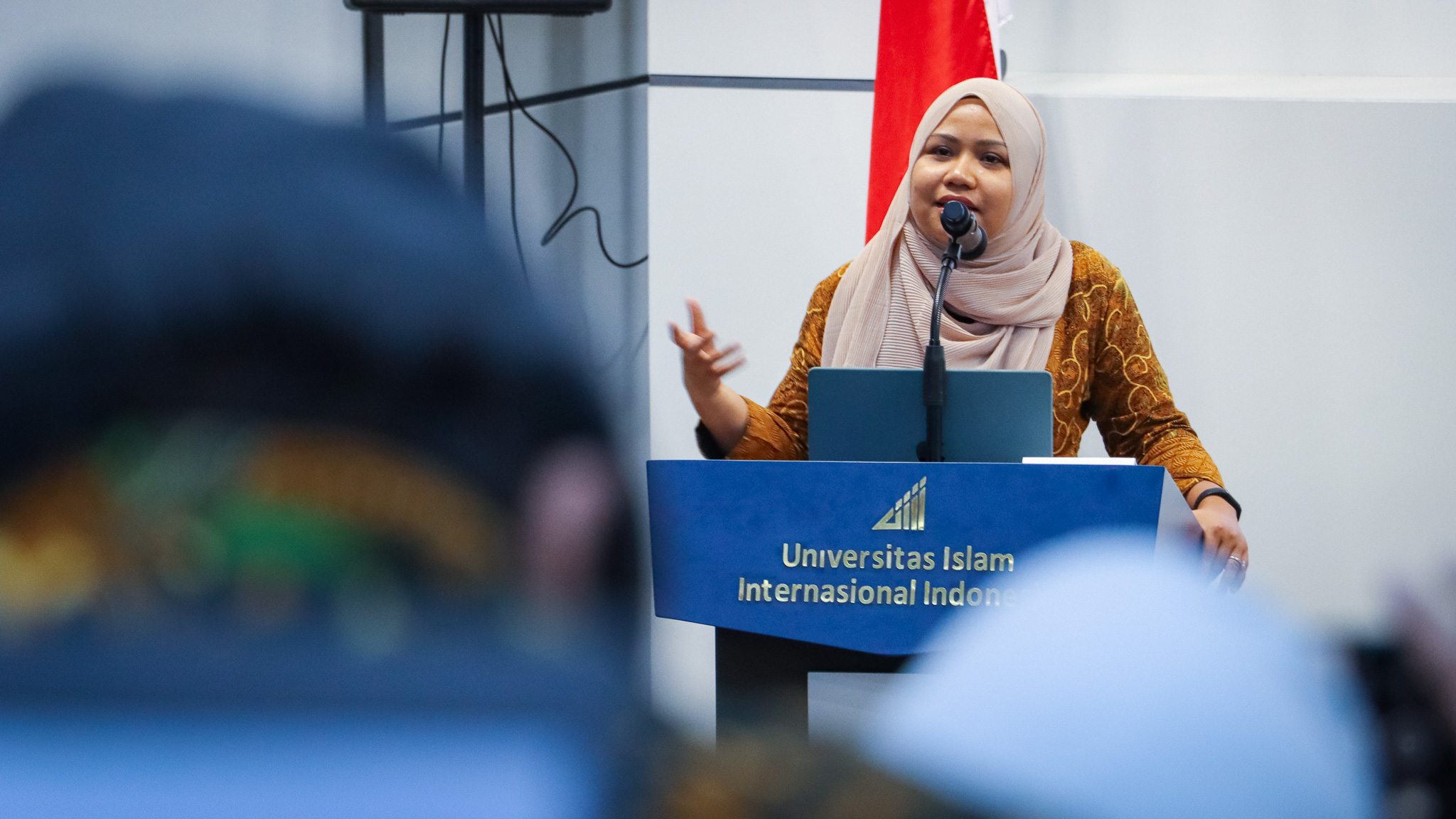UIII Holds Public Lecture on Colonial Debates on Islamic Law
April 18, 2023Contributor: Kante Hamed | Editor: Supriyono

The Faculty of Islamic Studies at Universitas Islam Internasional Indonesia (UIII) organized a public lecture on April 13, 2023, with the topic "Colonial Debates about the Place of Islamic Law in Society: Snouck Hurgronje and Van den Berg Revisited", inviting eminent scholar Dr. Stijn Cornelis Van Huis.
One of the most significant issues concerning Islamic societies during the colonial era was the question of how to reconcile Islamic law with colonialism. Two colonial scholars, Snouck Hurgronje and Van den Berg, grappled with this question, and their debates have continued to shape the discourse on the place of Islamic law in society.
Dr. Van Huis is a lecturer in the Department of Law at Bina Nusantara University, who has extensively written on colonialism and Islamic law. During the lecture, he revisited this debate by providing important insights into the colonial context in which the debates took place and explored the implications of these debates for contemporary understandings of Islamic law.
He questioned the originality of two main pillars of Snouck Hurgronje’s typology of Indonesian Islam by comparing them with the writings of his predecessor Van den Berg. Firstly, he started by saying that the "two colonial advisers [were] taking opposite positions, between the "Reception theory" and the Receptio in complexu (Reception in the Complex)”.
Additionally, he elaborated that according to academia the starting points of these two scholars were diametrically opposed. In this regard, Van den Berg considered Islamic law as fundamental to Indonesian law for Muslims, yet Snouck Hurgronje argued that this was adat (custom), instead of Islamic Law.
However, he stressed that a close reading of Snouck Hurgronje and Van den Berg's works is necessary. He argued that it is overly simplistic to portray Van den Berg as having "endorsed a full application of Islamic law in Indonesia" and Snouck Hurgronje as having "used the adat discourse as much as possible to diminish the scope of Islamic law in Indonesia."
The speaker's goal was to contest Snouck's claim that he discovered adat law and to challenge the uniqueness of his theory regarding the predominance of adat over Islamic law in Indonesia. "The centrality of adat in the life of Indonesian communities was actually commonly acknowledged among Dutch colonial observers before him," he said.
Dr. Van Huis also aimed to dispute the idea that Snouck's views on Islam were all grounded in empirical knowledge, noting that Snouck frequently favored fiqh (Islamic jurisprudence) above the living law. "Berg held that colonial law had primacy over Islamic law, and adat rules could be applied by Priesterraden [Priest councils] if these were customary law," he said.
Dr. Van Huis maintained that Berg's nuanced viewpoint had an impact on how Islamic law and adat were perceived in Java. Contrarily Snouck often "showed a preference for textual interpretations of Islamic law - not local Islamic practices".
In addition, Dr. Van Huis also emphasized the significance of Snouck Hurgronje's argument that Islamic law should not be viewed as a static and unchanging set of rules, but rather as a dynamic process that evolves. He also drew attention to Van den Berg's view that the role of the state should be to modernize, secularize, and rationalize Islamic law.
Through his lecture, Dr. Van Huis provided an important contribution to the ongoing conversations about the place of Islamic law in modern society. He highlighted the importance of understanding the historical and colonial context in which these debates emerged and pointed to the need for a nuanced and holistic approach to Islamic law.
The event was attended by students and lecturers who were eager to engage with these critical questions. It was a valuable opportunity for attendees to deepen their understanding of the relationship between Islamic law and colonialism and to consider the relevance of these debates today.
- Call for Papers 2025: FEB UIII Invites Researchers to Explore Muslim World Economy & Sustainability in OIC Countries
- Prof. Dr. Nasaruddin Umar: A Distinguished Profile in Religious Leadership
- Is Indonesia’s Middle Class Collapsing?
- Pedaling to Work, Dr. Lukman’s Message on ‘World Sustainable Transport Day’
- Welcoming the Pilgrim of Hope: Indonesian Muslim Leaders Embrace Pope Francis
- Sheikh Muhammad adh-Dhuwaini: A Recognized Authority in Sharia and Law
- Qurban and Grassroots Innovations Across Indonesia
- Indonesia's Green Qurban Movement
- UIII Productivity Ratio 2023
- Unsung Heroes in Global Trade: Celebrating International Customs Day 2024


